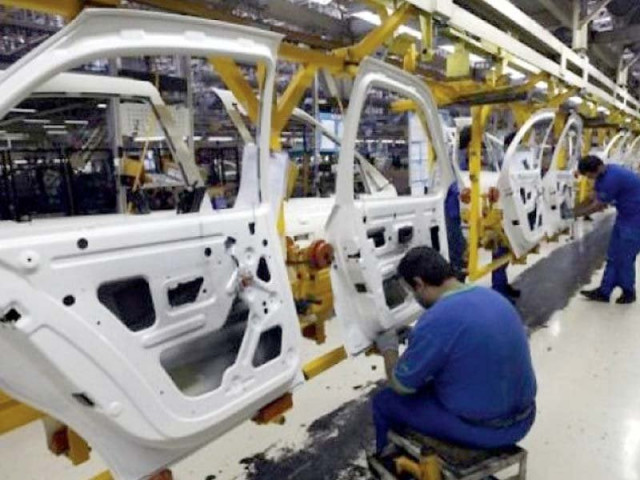Govt defers 10% cut in duty on imported vehicles
Move set to reinforce monopoly of local car assemblers for another year

In order to ensure consumer welfare, the ECC had said that the delivery schedule of vehicles should not exceed two months. PHOTO: AFP
The move reinforces monopoly of local car assemblers and gives a negative signal to foreign investors planning to set up assembly plants in Pakistan about inconsistency in economic policies.
According to Federal Board of Revenue Customs Policy Chief Dr Iftikhar, the decision to reduce 10% customs duty on completely built units (CBU) of 800cc to 1,800cc cars was deferred “at the eleventh hour”.
In March last year, the federal government had approved a new five-year Automotive Development Policy 2016-2021, under which, in the CBU category, customs duty on cars up to 1,800cc engine capacity was supposed to be reduced by 10% for two years - 2017-18 and 2018-19.
After a hiatus of almost two and a half years, the Economic Coordination Committee (ECC) of the cabinet had approved the policy. According to it, customs duty on 800cc cars was supposed to go down from 50% to 40% from July 1. Similarly, customs duty on 801cc to 1,000cc cars had to be cut to 45% from 55%, on 1,001cc to 1,500cc cars to 50% from 60%, and on 1,501cc to 1,800cc cars to 65% from 75% of the price of the vehicle.
Senate Standing Committee on Finance Chairman Saleem Mandviwalla said that he suspects the government must have taken the decision on the intervention of the manufacturers’ lobby.
Meanwhile, sources say that Q Block - the seat of the Ministry of Finance - took the decision to postpone the implementation of the tariff reduction plan. They said that the Q Block opposed the proposal to implement the automobile policy.
The uncertainty over the taxation regime may affect the sentiment of foreign investors who were planning to set up their plants in Pakistan. Board of Investment Chairman Miftah Ismail, who was at the forefront to bring a European brand, was not available for comments.
Nevertheless, a recent survey by the Overseas Investors Chamber of Commerce and Industry (OICCI) - the representative body of 193 foreign firms working in Pakistan - has identified inconsistent taxation policies among three main concerns of the foreign investors.
It is not clear whether the government would also defer the implementation of other incentives announced in the policy. Among them was a single duty rate on the localised and non-localised parts after five years of the new car policy.
In order to ensure consumer welfare, the ECC had approved that only 50% of the total payment will be made in advance at the time of booking of a vehicle. The price and delivery schedule should not exceed two months and in case of any delay in delivery beyond two months, the car manufacturer will give a discount to buyer equivalent to a rate, which should be 2% higher than prevailing Karachi Inter-bank Offered Rate.
The standing committee has decided to seek an explanation from the Ministry of Industry and Production and would give its recommendations to the government next week.
Published in The Express Tribune, June 4th, 2017.
Like Business on Facebook, follow @TribuneBiz on Twitter to stay informed and join in the conversation.





1733130350-0/Untitled-design-(76)1733130350-0-208x130.webp)











COMMENTS
Comments are moderated and generally will be posted if they are on-topic and not abusive.
For more information, please see our Comments FAQ